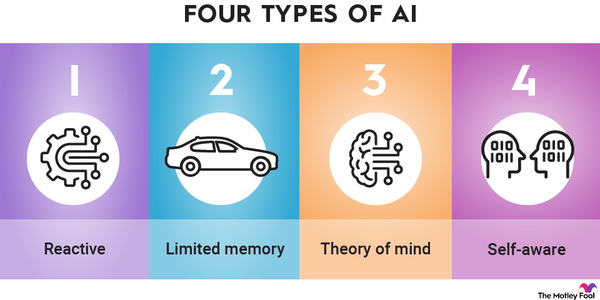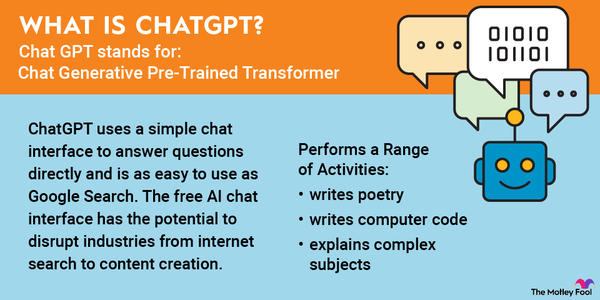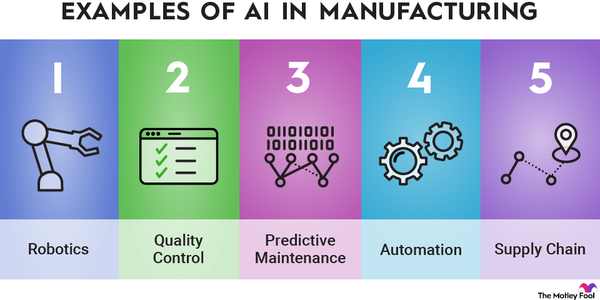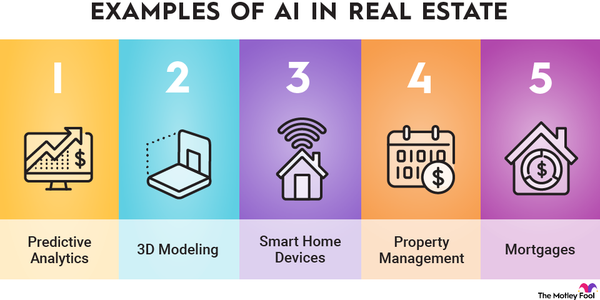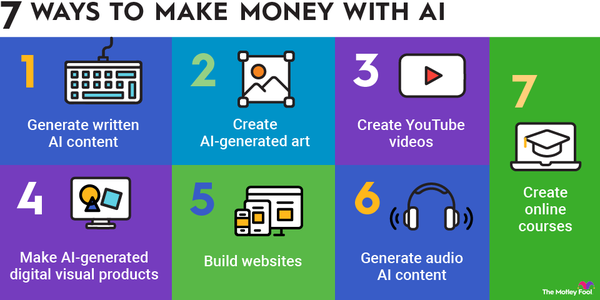Investor interest is surging in all things AI, so it shouldn't come as a surprise that artificial intelligence (AI) start-ups are also popping up on investors' radars.
With the launch of ChatGPT in November 2022, the potential for AI has crystallized across the business world and among investors, and the implications for the new technology are vast.
Among them is a new race among start-ups to challenge ChatGPT and, separately, to come up with the next big thing in generative AI.

Not surprisingly, money from venture capital firms and other investors has poured into AI start-ups, and the industry is booming.
In this discussion on AI start-ups, we'll review some of the hottest privately held companies working on artificial intelligence today, analyze the pros and cons of investing in AI start-ups, and answer some commonly asked questions about AI start-ups.
Artificial Intelligence
Best AI start-ups
Best AI start-ups to watch this year
1. OpenAI
1. OpenAI
As you might expect, ChatGPT owner OpenAI has received the lion's share of the attention in AI start-ups this year.
OpenAI has developed other renowned products, including its image-generating AI, DALL-E, and text-to-video AI, Sora, and its success with ChatGPT and its high-profile partnership with Microsoft (MSFT -0.1%) makes it the premier AI start-up these days.
OpenAI was founded in 2015 with several co-founders, including Elon Musk, though Musk eventually left the company to work on Tesla (TSLA -3.46%) and SpaceX.
AutoGPT
In 2023, OpenAI raised $10 billion from Microsoft, strengthening the strategic partnership between the two companies and reflecting Microsoft's own confidence in ChatGPT as a product. Microsoft has incorporated its technology into a range of its products, including its Bing search engine and Azure cloud infrastructure services.
In early October 2024, OpenAI raised $6.6 billion at a valuation of $157 billion, making it the most valuable AI start-up, largely because of the success of ChatGPT. Investors included Microsoft, Nvidia (NVDA 3.08%), and venture capital firms.
2. Anthropic
2. Anthropic
Anthropic is rapidly emerging as the chief start-up rival to OpenAI.
Founded in 2021 by former OpenAI researchers, Anthropic counts Google and Amazon (AMZN 0.73%) as major investors. The Alphabet (GOOG 1.72%) (GOOGL 1.54%) subsidiary took a 10% stake earlier in 2023, and Anthopic has had multiple funding rounds in 2023 and 2024. It was valued at $18.4 billion in March, and it also counts Salesforce (CRM 2.21%) and Zoom (ZM 1.84%) as investors.
Anthropic is best known for its generative AI chatbot, Claude, which it launched in March 2023. Some users think Claude is friendlier than ChatGPT, though they say that ChatGPT is better for analyzing and summarizing documents. It's also said to be more versatile than Claude.
According to some reviews, Claude gets better results with things like creative tasks, following instructions, and answering trivia questions.
Anthropic describes Claude as being "much less likely to produce harmful outputs, easier to converse with, and more steerable" than other AI chatbots. In other words, Claude seems designed to avoid some of the problems that have plagued ChatGPT and Google's AI chatbots.
3. Perplexity AI
3. Perplexity AI
Valued at $3 billion as of June 2024, Perplexity AI is another promising AI start-up.
Perplexity is backed by Softbank's (SFTBF -6.72%) Vision Fund, the prolific start-up investors known for backing companies like Uber (UBER 0.86%), DoorDash (DASH 2.0%), Arm Holdings (ARM 0.04%), and WeWork. Perplexity has also raised money from Nvidia and Amazon founder Jeff Bezos.
Perplexity has differentiated itself from other AI chatbots with a focus on search tools that feature sources and citations. Some see Perplexity as the best AI alternative to a traditional Google search.
Perplexity said it had responded to more than 500 million queries in 2023 even as its marketing spend was minimal.
4. xAI
4. xAI
Elon Musk has had his hand in a wide range of emerging technologies, including electric vehicles, renewable energy, spacecraft and rockets, and satellite internet, so it shouldn't come as a surprise that he also has an AI start-up. (Musk was even co-founder of OpenAI, although he left that company in 2018.)
xAI, his AI start-up, is one of the most valuable today, worth $24 billion after raising $6 billion in May from VC firms like Andreessen Horowitz and Sequoia Capital.
xAI is the creator of Grok, the chatbot featured on the social media platform X, which Musk also owns. That gives xAI something of an advantage as most AI start-ups don't have an allied platform like X that can help draw users to the product.
Some users think Grok is less censored than ChatGPT.
5. Mistral AI
5. Mistral AI
Mistral AI is one of the youngest AI start-ups to make a splash in the industry. The company was able to easily raise money since it was founded by execs from Meta Platforms (META -1.73%) and Google.
After a funding round in June, the start-up is now valued at $6.2 billion, raising $640 million from the likes of Andreessen Horowitz, Nvidia, and Samsung.
Mistral is unique among AI start-ups. It's based in France, and has received a strong endorsement from the French government and President Emmanuel Macron.
It takes an open-source approach to AI, meaning its code is available to anyone who wants to use it. It's chatbot is called Le Chat and is known for being strong in a wide range of languages.
Related investing topics
Should you invest?
Should you invest in AI start-ups?
Start-ups, by definition, are privately held, which means it's difficult for retail investors to invest in them.
However, there are ways to get exposure to AI start-ups. The easiest way is by investing in a publicly traded company that has a stake in an AI start-up. For instance, you could buy shares of Microsoft, which would give you indirect ownership of OpenAI. Similarly, you could buy stock in Alphabet to get exposure to Anthropic.
Investors should remember that start-ups tend to be riskier than publicly traded companies, and many start-ups won't succeed. However, if you find an AI start-up that looks promising, it's worth investigating if any publicly traded companies have a stake in it.
Investors looking for opportunities in artificial intelligence can also consider investing in AI stocks or AI ETFs.
FAQ
AI Start-Up FAQ
What are AI start-ups?
Artificial intelligence (AI) start-ups are early-stage companies that are developing AI technologies or using them in their products and generally raising money from venture capital firms. Those could include everything from natural language processing like chatbots to robotics to machine learning.
How do AI start-ups make money?
Some AI start-ups make money by selling their products to customers, but most AI start-ups are unprofitable. They raise money from venture capitalists and others to fund research, develop new products, and bring them to market.
What are the five big ideas in AI?
The five big ideas in AI are:
- Perception: Computers need to sense the world through seeing and hearing like humans do.
- Representation & Reasoning: Computers use data to construct representations to help them develop reasoning algorithms.
- Learning: Machine learning algorithms that use statistical inference from large amounts are a foundational concept in AI.
- Natural interaction: AI agents need to be able to converse in human languages and read facial expressions and emotions.
- Societal impact: AI is a powerful technology and it's important for industry leaders to consider the potential for harm, as well as the other ethical implications of their products.







